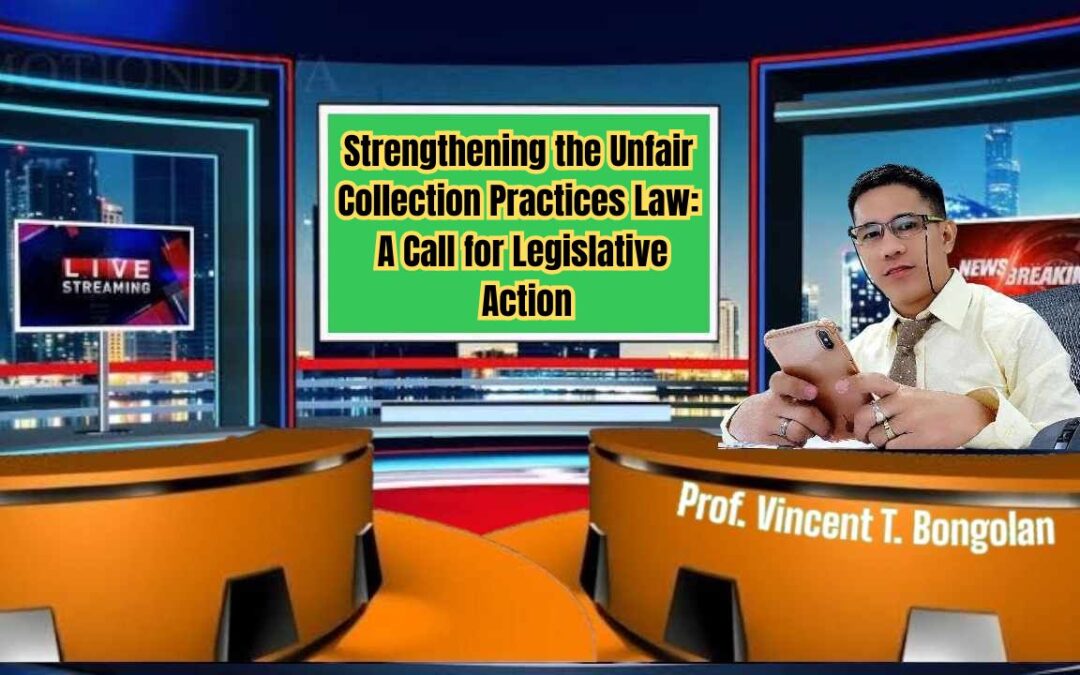Hiling sa Kongreso: Palakasin ang Batas Laban sa Hindi Makatarungang Pagsingil ng Utang
Ikaw ba ay may utang sa bangko o credit card? Hindi ka kriminal dahil lang sa hindi mo pa nababayaran ang iyong utang. Maraming Pilipino ang nalulubog sa utang hindi dahil sa kapabayaan kundi dahil sa kawalan ng sapat na kita at kakulangan ng oportunidad sa trabaho. Ang ibang nangutang ay nais bayaran ang kanilang obligasyon ngunit sa sobrang taas ng interes at bigat ng singil, hindi nila ito kayang habulin. Sa kabila ng kanilang pagsisikap, patuloy silang hinahabol ng bangko at lending institutions, na tila ba wala nang bukas para sa kanila.
Kapag ang isang account ay na-endorso na sa collection agencies, nagsisimula ang mas matinding paghihirap ng isang nangungutang. Araw-araw, paulit-ulit silang nakakatanggap ng SMS na may pananakot, at halos walang tigil ang tawag mula sa mga ahente ng koleksyon—minsan, kahit dis-oras ng gabi o madaling araw. Ang ganitong klase ng harassment ay hindi makatarungan at nagdadala lamang ng matinding stress sa mga nangungutang na sa halip na makahanap ng solusyon, lalo pang nalulugmok sa problema.
Isipin natin ang isang taong walang trabaho at pilit naghahanap ng mapapasukan. Nagpapadala siya ng aplikasyon sa iba’t ibang kumpanya at buong pag-asang hinihintay ang tawag ng employer. Subalit sa halip na tawag mula sa kumpanyang kanyang inaasahan, puro tawag ng collection agency ang natatanggap niya, halos bawat tatlong minuto! Paano makakahanap ng trabaho ang isang taong patuloy na inaabala ng ganitong klase ng panggigipit? Ang mas masakit pa, wala siyang kahit anong pagkakakitaan upang mabayaran ang kanyang utang.
Bukod pa rito, ang pangalan ng hindi nakabayad ay agad na inilalagay sa blacklist at ipinapasa sa lahat ng bangko at lending institutions. Nangangahulugan ito na kahit gusto niyang mangutang muli upang magsimula ng negosyo at bumangon, wala na siyang pagkakataon. Ang kanyang credit score ay winasak, at wala na siyang access sa kahit anong pondo na maaaring makatulong sa kanya upang muling makabangon. Ang ganitong sistema ay hindi patas at lalong nagpapahirap sa mga Pilipinong nais makaalpas sa utang.
Dahil dito, hinihiling natin sa Kongreso na magpasa ng batas na magpapalakas sa Unfair Collection Practices Law o sa Memorandum Circular No. 18, Series of 2019. Dapat magkaroon ng proteksyon ang mga nangungutang laban sa pang-aabuso ng mga bangko at collection agencies. Hindi dapat masira ang pangalan ng isang tao dahil lang sa kakulangan niya ng pera sa isang tiyak na panahon. Ang mas makatarungan ay bigyan sila ng pagkakataong makabayad sa isang sistema na hindi nang-aapi, hindi naninira, at hindi nagdadagdag ng pasanin sa halip na makatulong.

